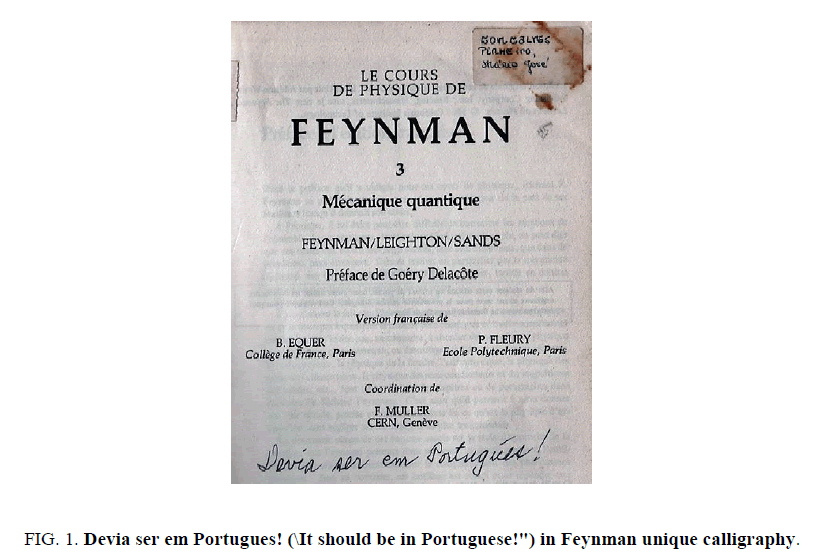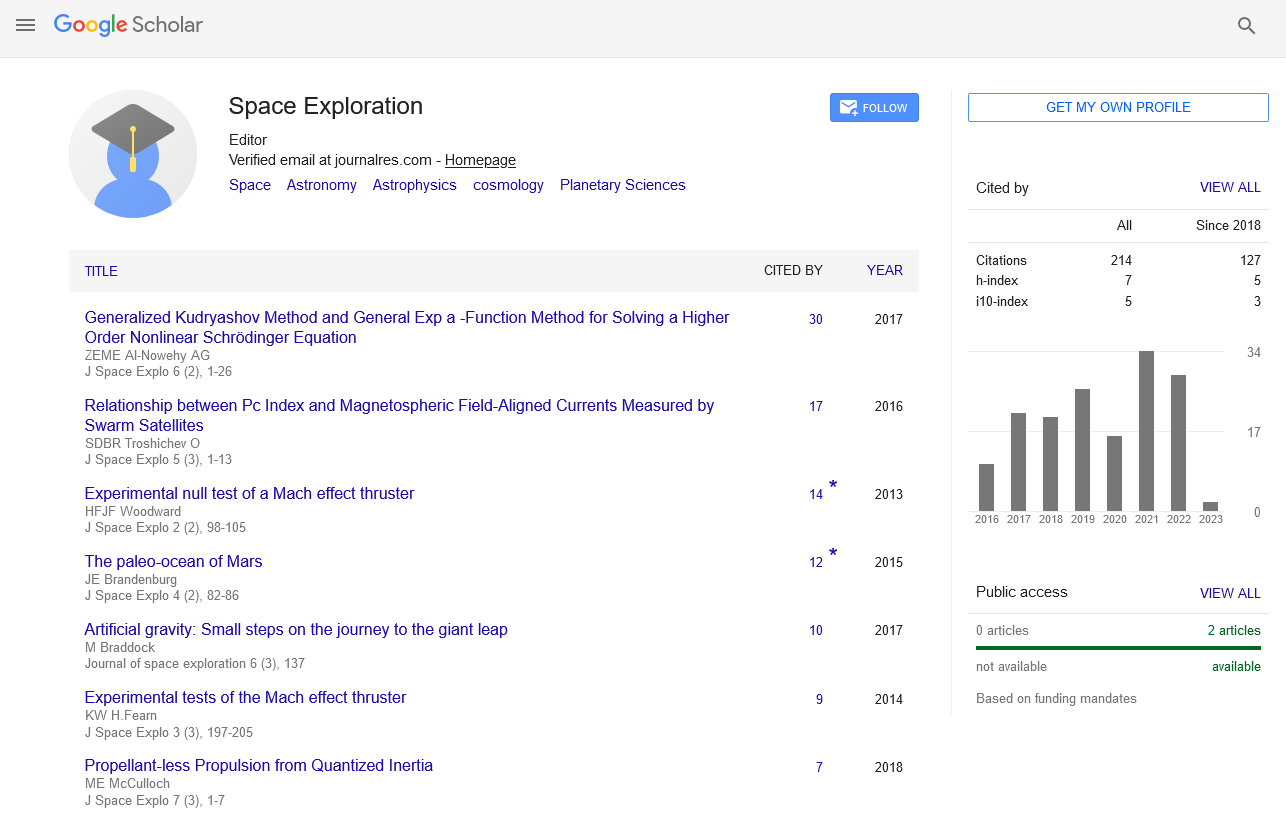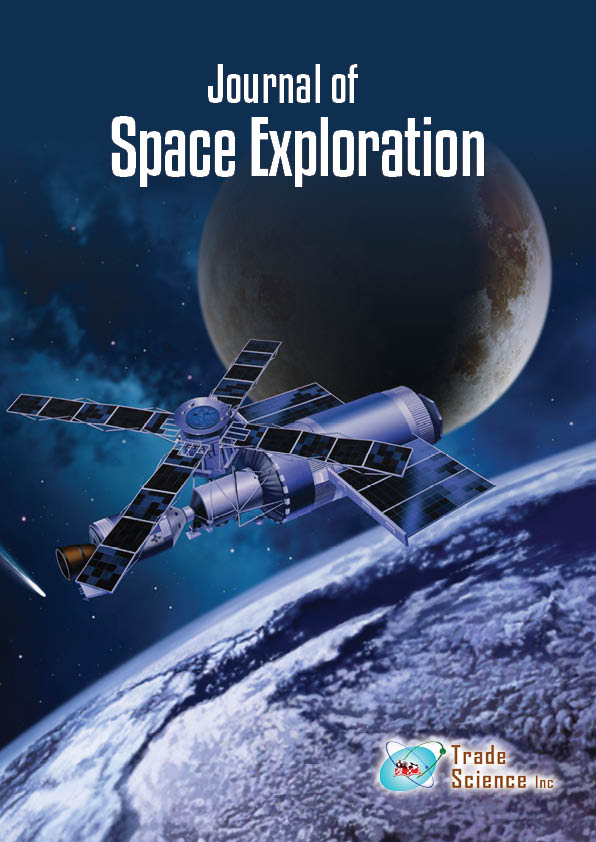Short commentary
, Volume: 6( 1)Remembering Richard P Feynman: Devia ser em portugues!
- *Correspondence:
- Mario J. Pinheiro , Instituto Superior Técnico - IST, Universidade de Lisboa - UL, Portugal, Tel: +351217967624; E-mail: mpinheiro@tecnico.ulisboa.pt
Received: February 24, 2017; Accepted: March 17, 2017; Published: March 25, 2017
Citation: Mario JP. Remembering Richard P. Feynman: Devia ser em portugues!. J Space Explor. 2017;6(1):115.
Abstract
This is a brief account of a short meeting with the inimitable physicist, Richard P. Feynman
Introduction
I met Richard Feynman in 1981, in Lisbon, when I was a young physics student in Paris. He was then a Nobel Laureate and famed man of science. I didn't know him personally and had no clue what he looked like, but I wanted to meet him, so I spent literally all day looking for him during the International Conference on High Energy Physics, which was held in Lisbon from July 9-15 of that year. Because I did not know how to find him, I approached and asked Gerhard t'Hooft, who at the time was not yet a Nobel Laureate. Surprised by my question, t'Hooft replied, \He was just around a few seconds ago." As I continued looking for Feynman, I noticed a relaxed-looking man sitting on a nearby chair, staring at me with a funny expression on his face. As the young and solemn science guy, I supposed to be, I didn't like that at all, and I showed this staring man my displeasure with a disapproving look. Come on! I was a serious student, looking for Feynman! Later, near the end of the conference, I was sitting in the lecture hall, listening attentively to the talk given by t'Hooft, when the staring man arrived and sat in the same row of chairs, once again openly, shamelessly looking at me. I was earnestly taking notes, eager to see and hear the last scheduled talk of the day, which was to be given by Feynman. I was incensed with this brazenly staring gentlemen! Finally, t'Hooft finished his talk. I was happy because I had grasped the meaning of his presentation and was eagerly anticipating what was to come. Then the next speaker appeared on the stage. It was the guy who had exasperated me! It was Feynman! He gave a simple, clear description of his own theory of quantum chromodynamics and was so at ease while lecturing that, noticing he had inadvertently left his trouser zipper open, he simply zipped it closed again while continuing to effortlessly explain his ideas. At the end of the day, discouraged by my adventurous but unsuccessful attempt to talk with the Genius, I was leaving the Calouste Gulbenkian Foundation, where all the drama had taken place, when unexpectedly, I saw him bent over a table, apparently making calculations (or drawing?). Summoning all my courage, I went straight to him and asked, \Are you Mr. Richard P. Feynman?" (I must say that at the time, I was accustomed to using the general expression Messieurs, as the French still use today, no matter the social position of the individual, a consequence of the French Revolution). He turned slowly, with a playfully wicked expression, and responded, \Yes, that's me." He straighten his slim, tall, tanned body to look me straight in the eyes, with a twinkle in his own. I asked if he could write something in one page of the book I had with me, a text about quantum mechanics he had authored (Figure. 1). He responded, \Sure, give me your book," and pointed his hand in the direction of the suitcase I was carrying with me. He looked carefully at the volume I handed him, a French translation of his writing, and clearly displeased, said, \Devia ser em Portugues!" (\It should be in Portuguese!"). His indignation beautifully conveyed his conviction that we in Portugal should have scientific literature in our own language.
He then wrote directly in the frontispiece (Figure. 1) with a beautiful calligraphy that looks almost Victorian. As he handed me the book, Feynman told me, \Eu vivi 30 anos no Brasil!" (I lived 30 years in Brazil!"). Recognizing something wrong in his phrase, he quickly apologized, saying sometimes he confused Portuguese with Spanish (in truth, he lived about three years in Brazil). With complete ease, he continued visiting with me, even making a gesture to me for wait for him while he said goodbye to another well-known physicist. As we walked slowly up the stairs to the outside door, I asked if I could send him an article I (as a matter, only published in 2013, see1) [1]. He immediately replied, \No, absolutely not!" I asked, \Is that your politics?" (I inquired, using the word wrongly, because I really meant policy") \No, nothing of politics!" he responded, stopping and looking at me with an authoritative expression. He explained that he never looked at the work of others unless that work focused on fundamentals; otherwise, he didn't wish be distracted and waste time. I understood. He spoke a bit more with me, openly and happily, as we stood at the entrance of the Calouste Gulbenkian Foundation, until he said, \Boa noite!" (\Good night!") and walked away, comfortably alone in the streets of Lisbon.
I was lucky to have had a chance to discover some of the hidden, authentic characteristics of his personality. He was a funny person-naturally clever, but humble too-with a lot of patience for young people like me. He despised arrogance and probably avoided people because of it (I saw him alone the majority of the time). That was Feynman: off the beaten track!


